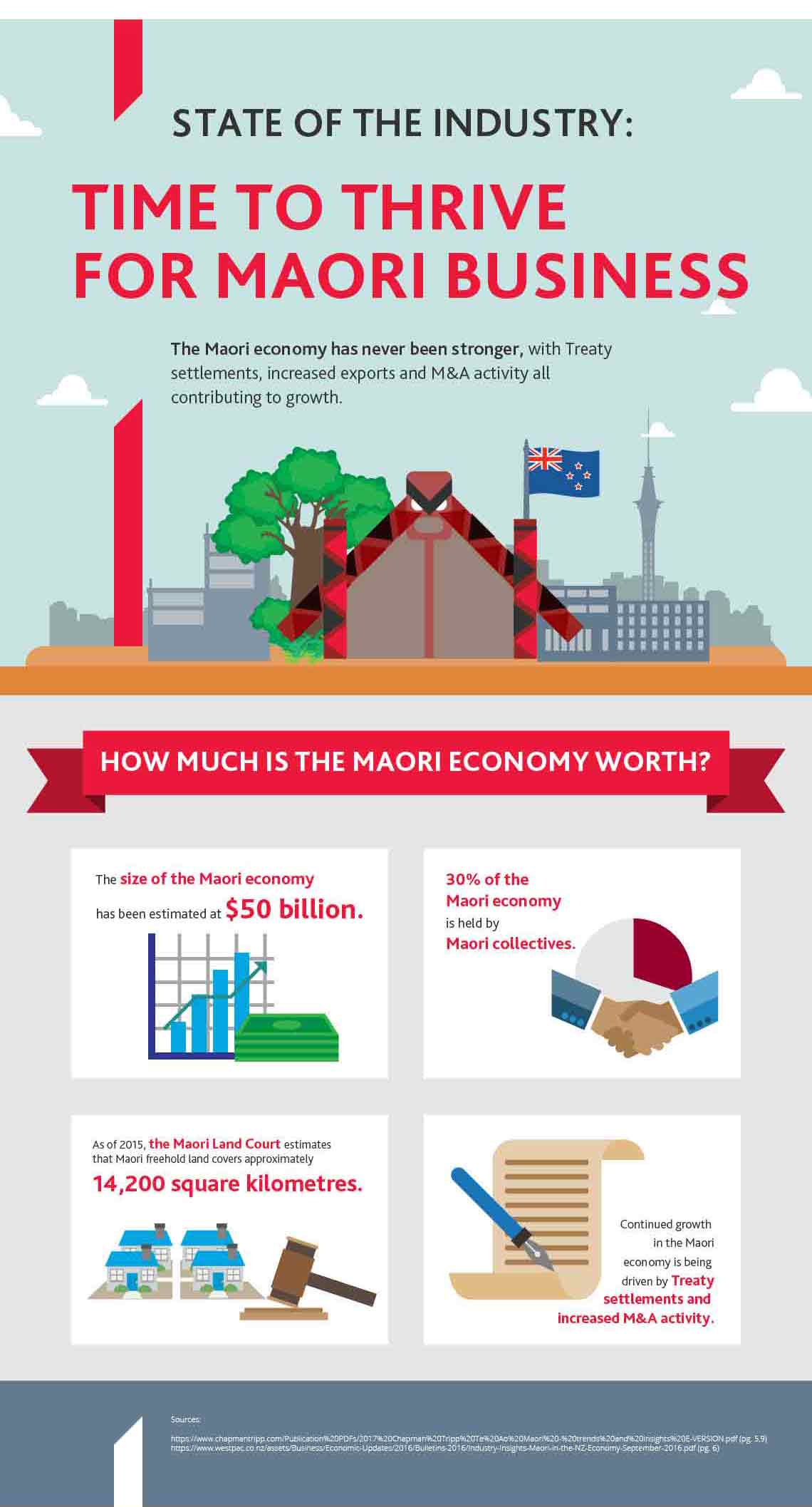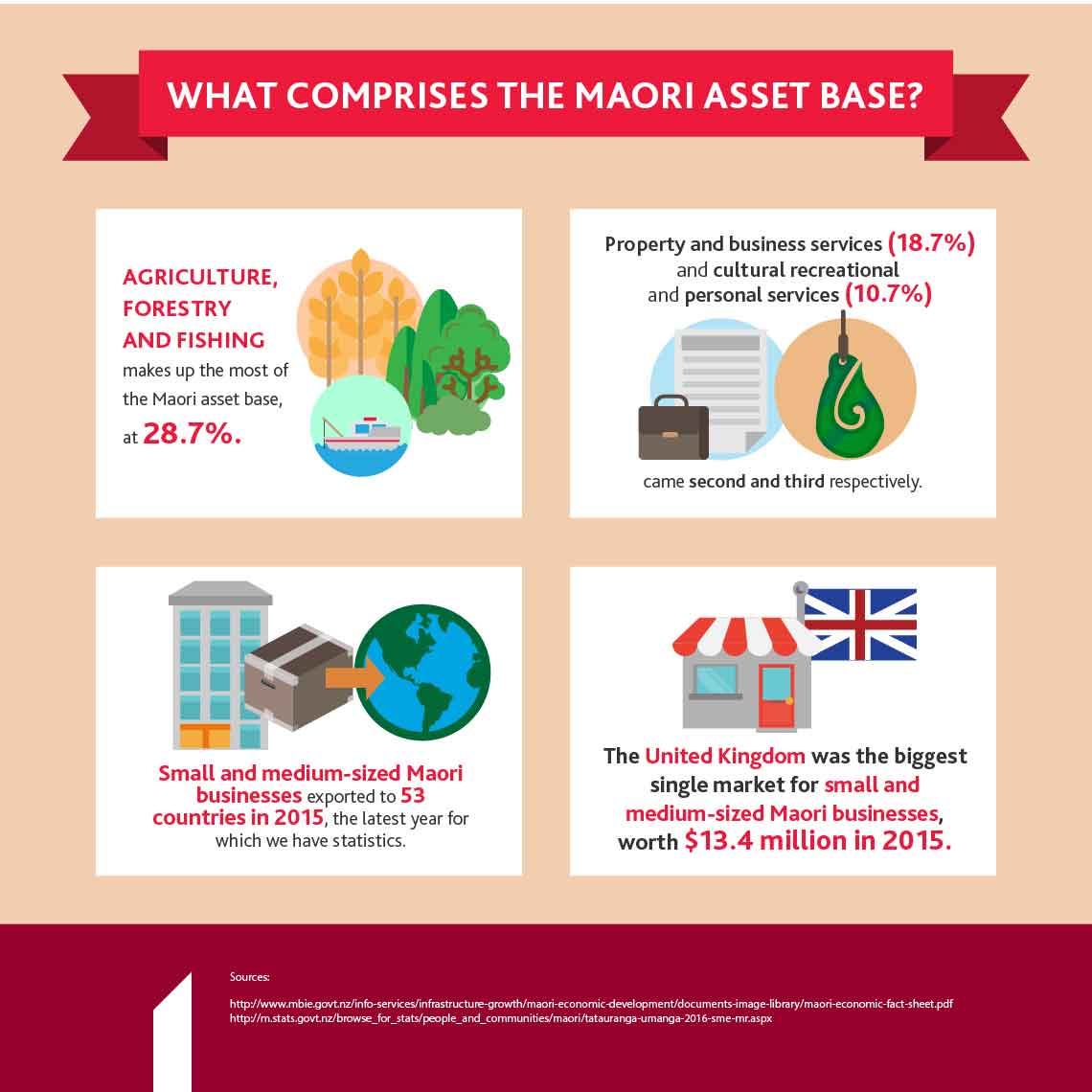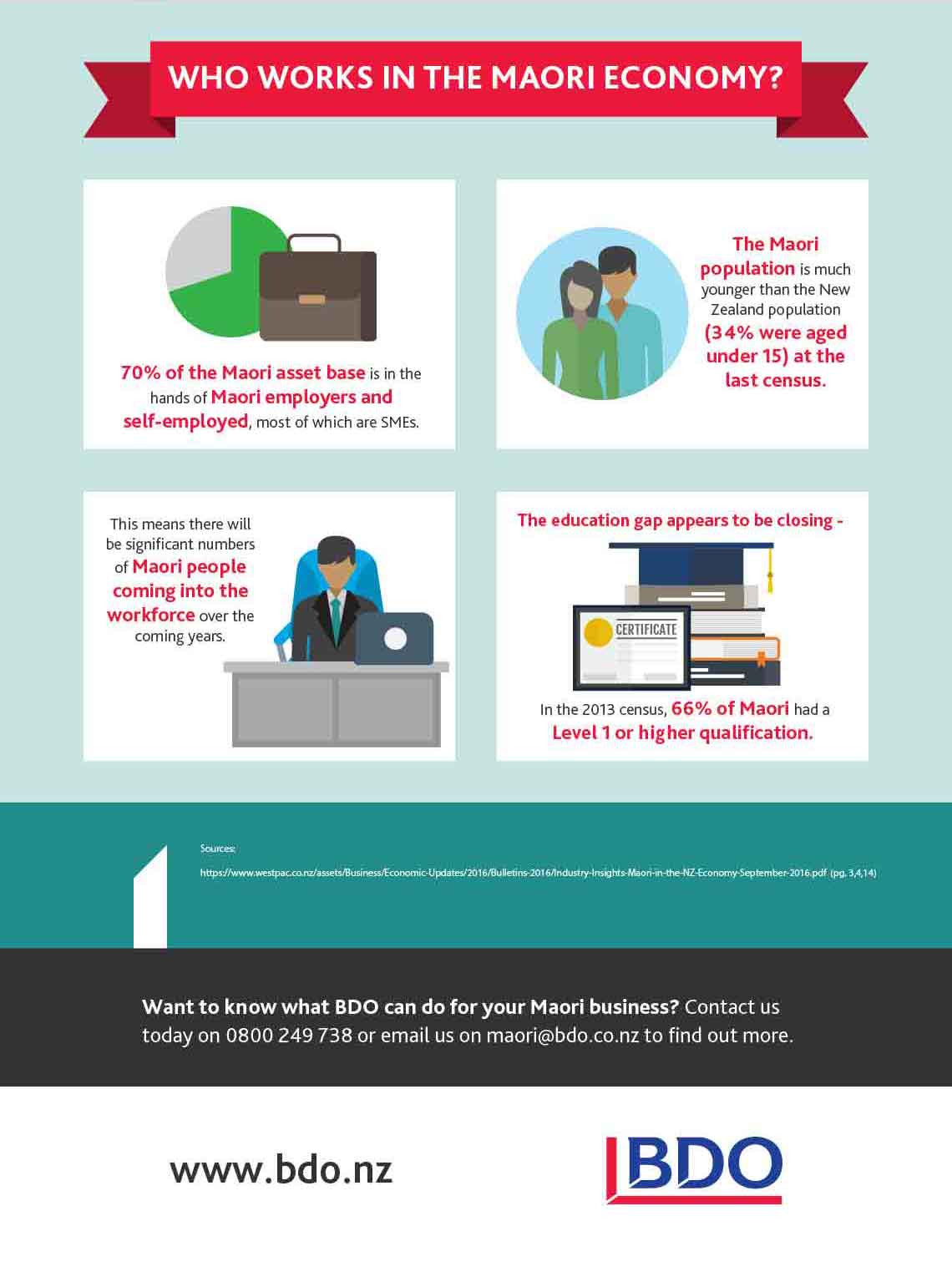"Who'd have thought that on Māori land we'd be launching rockets?" asks Kylee Potae, Māori Sector Lead Partner at BDO New Zealand. Speaking about a Māori business owner who's recently started leasing out land for rocket launches, her enthusiasm is infectious, and it's a testament to just what an exciting time this is for the Māori economy. Businesses are moving into areas no-one would ever have guessed, and the Māori economy has been expanding year-on-year. It was most recently valued at an estimated $50 billion by Chapman Tripp.
We caught up with Kylee to find out what's causing this success, and where the Māori economy might go next.
Sustainability: What consumers want
While most businesses want to be sustainable, for Māori this is driven by choice rather than necessity. This is because Māori inherit their assets by birth, and so having something to pass on to the next generation is extremely important.
On top of this, the Māori world view is centred around sustainability. "We have a holistic belief that we are part of our environment, we're connected to it and we have a responsibility for it," explains Kylee. "This includes the people around us." People, planet and profit therefore form the three pillars of Māori business, and those operating in the space work hard to ensure each is in balance.
"While most businesses want to be sustainable, for Māori this isn't a choice but is driven out of necessity."
While this means that profits aren't always as high as businesses where the focus is solely based around revenue, Kylee sees now as the perfect time for the Māori cultural view to really take off in the wider marketplace.
"Consumers are now looking for products that have a positive social and environmental impact - Māori businesses have always looked to achieve this, and their aims now marry up perfectly with what the market wants," says Kylee.
This consumer trend is only set to grow as Generation Z (the post-millennial generation made up of people born after the mid-1990s) enter into the marketplace. For example, 72 per cent of respondents to a Nielsen survey that were aged under 20 said they would pay more for sustainable products, and as their purchasing power grows businesses all over the world will have to respond. Fortunately for Māori businesses, many already operate on a sustainability-based model.
Socio-economic responsibility
For Māori businesses, much of this translates into what they do for the communities around them. Māori can sometimes struggle with poor socio-economic conditions. As of June 2016, the unemployment rate for Māori was 11 per cent, compared to 4.9 per cent for all New Zealanders, according to a Westpac survey. There are also a significantly larger proportion of working-age Māori on very low incomes (under $5,000 a year).
However, with the help of Māori business initiatives, this is changing. Ngāti Whātua Ōrakei, for example, is developing Kāinga Tuatahi - a communal housing scheme for Whānau members. The scheme will include a programme to underwrite mortgages so as many Whānau as possible can get into the property market.
With improving socio-economic conditions, Māori are set to make a significant impact in the workforce.
Māori education levels are also improving. As of the last census (2013), 66 per cent of Māori had a Level 1 or higher qualification, Westpac reports. This is compared to 72 per cent of all New Zealanders, and suggests the education gap is closing.
The Māori population is a lot younger when compared to New Zealand-wide figures. The same Westpac survey found that just 21 per cent of New Zealand's population was aged under 15 in 2013, but the same could be said for 34 per cent of Māori. Therefore more Māori will be entering the workforce in the coming years, and with the improving socio-economic conditions, they're set to make a significant impact.
This means that, as Kylee says, the opportunities are limitless in the Māori economy. As new Treaty settlements are made and the market for sustainable business continues to expand, Māori are identifying new sectors and new opportunities on a daily basis.
"I love working in this area because the work we do really can take us anywhere," explains Kylee. "Māori business owners will consider moving into any area as long as it can provide a profit and sustain the people and planet around it."
While agriculture continues to make up the largest share of the Māori asset base (standing at 28.7 per cent, according to statistics from the Ministry of Business, Innovation and and Employment), there are many other areas that Māori are getting into.
From finance and culture, to retail and rockets, there's no knowing where the Māori economy might take off next.
.jpg.aspx?width=500&height=926)
.jpg.aspx?width=500&height=500)
.jpg.aspx?width=500&height=675)